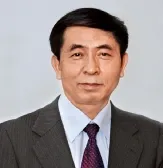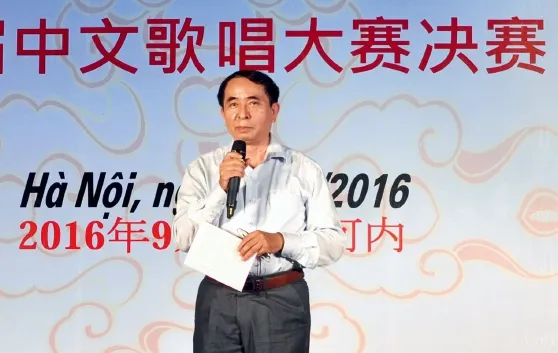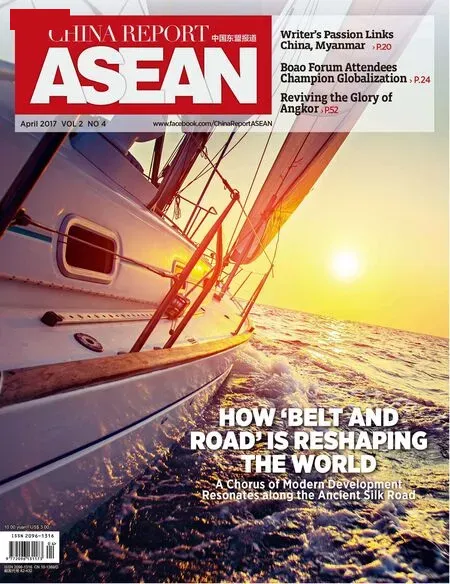Endless Commitment to China-Vietnam Friendship
By Liu Gang
Endless Commitment to China-Vietnam Friendship
By Liu Gang
Military veteran, experienced diplomat and translator, Nguyen Vinh Quang is an expert on China-Vietnam ties

Nguyen Vinh Quang, standing vice chairman of the Vietnam-China Friendship Association and a renowned Vietnamese translator.
Nguyen has long engaged in diplomatic work with China and has become very familiar with the development of the Communist Party of China and China’s overall situation. Therefore, he is able to translate books of political theory with ease.
The Romance of the Three Kingdoms, Journey to the Westand other Chinese classical literary works have long been popular with Vietnamese readers. Nguyen Vinh Quang, standing vice chairman of the Vietnam-China Friendship Association and a Chinese-Vietnamese translator, is no exception.
“At the beginning I read these works of literature in their Vietnamese versions, and as my Chinese improved, I began to read the original versions,” Nguyen explained in a recent interview. “I am very fond of Lu Xun’s works.A Madman’s DiaryandThe True Story of Ah Qare great.”
In 1968, Nguyen studied Chinese at the College of Foreign Languages, the predecessor to the University of Languages and International Studies at Vietnam National University in Hanoi. Nguyen fought American imperialists in Vietnam in 1972. He began to engage in diplomacy in 1978 after pursuing an advanced degree, and at one point served as an envoy at the Vietnamese Embassy in China. Nguyen is a senior diplomat in Vietnam and a veteran China watcher.
Window for Vietnamese to Study China
Nguyen began translatingThe Reforming Governmentin 1998.
“Government reform became a buzzword in China at the end of the 20th century and was of great concern to many countries,”Nguyen said. “This book became a useful reference for Vietnamese authorities and was well received.”
Nguyen has also translated a series of political theory books such asTurn and Innovation of Socialism,Socialism and Capitalism over the Past Centuryand others.
In Vietnam, countless numbers of Chinese books have been translated into Vietnamese, but the majority of them are fiction. It is rare to see Vietnamese editions of Chinese books pertaining to political theory. Nguyen has long engaged in diplomatic work with China and has become very familiar with the development of the Communist Party of China and China’s overall situation. Therefore, he is able to translate books of political theory with ease.
“I am particularly interested in Vietnamese economic reform and China’s opening-up policies, both of which have achieved great success,” Nguyen added.“Vietnam and China are also socialist countries led by their respective Communist Parties. Therefore, it is necessary for the two countries and the two parties to share and communicate with each other their experiences in state governance. I have translated China’s authoritative theoretical books into Vietnamese, so hopefully they can provide great reference for government officials in Vietnam.”
Nguyen further elaborated that at present, many Chinese works in terms of literature, art, history, film and television have been translated into Vietnamese. However, Chinese political theory books, which can provide valuable reference to Vietnam’s leaders and decision-makers, are less common.
Vietnam is in great need ofChina’s theory and experience on socialist construction, Nguyen said. He hopes to make a personal contribution to this ef f ort.
The launch ceremony of the Vietnamese edition of the book Xi Jinping: The Governance of China was held in Hanoi in November 2015. Nguyen recalled that “after the original version of this book was released, it attracted much attention both in China and abroad. Vietnam National Political Publishing House reached out to me with plans to publish the Vietnamese version of this book. They asked me to recommend translators. Actually, in Vietnam quite a few people can translate Chinese into their mother tongue, but not many are able to translate this kind of book. The Vietnamese version of this book is a result of collective wisdom and teamwork.”
As an important participant who was involved in all aspects of translation and editing of the Vietnamese version of Xi Jinping: The Governance of China, Nguyen said that he learned much relating to Chinese President Xi’s proposed new theories and ideas. He also learned a lot about China’s development and socialist construction in the face of complex domestic and international situations.
“This book can give the outside world a better understanding of China’s development strategy and future direction,” Nguyen added.

Standing Vice Chairman of the Vietnam-China Friendship Association Nguyen Vinh Quang attended the finals of the first Chinese Singing Contest held at the Confucius Institute of Hanoi University on Sept. 24, 2016.
Promoting Ongoing Friendship
Since retiring from work as a government official, Nguyen has kept himself busy organizing and participating in various friendly exchange activities.
“My life has two major tasks,”Nguyen explained. “One is that I served as a tank operator resisting imperialist aggression during the war against the U.S., which I have already completed. My second task is to contribute to the friendly relations between Vietnam and China. For this task, I need ongoing and continuous ef f ort.”
Nguyen was one of the recipients of the 10th China Book Award for Special Contributions. On behalf of the Chinese government, Chinese Vice Premier Liu Yandong presented the awards to 19 foreign writers, publishers and translators at the Great Hall of the People in Beijing in August 2016. The award is a recognition of their contributions to the translation of Chinese works to their mother tongue, or to the publication of Chinese literature overseas. They present Chinese stories in foreign languages and showcase a more comprehensive and real China to the outside world.
It is an honor to receive the award as a recognition of his contributions to the promotion of exchanges between China and Vietnam, Nguyen said. The two countries have many things in common, the most important of which is that both countries are socialist countries led by their respective Communist Parties. The paths China and Vietnam have taken are similar, so China’s experience and theory can provide a beneficial reference for the construction of socialism in Vietnam.
Vietnam pays close attention to China’s approach in terms of anti-corruption ef f orts and developing a clean government. For example, China has proposed guidelines that include comprehensively tackling corruption from both its roots and symptoms as well as combining punishment with prevention, in the hope of stamping out corruption for good. Nguyen said that through years of exploration, China has formed a set of anti-corruption mechanisms including the Regulations of Inner Party Supervision of the Communist Party of China and various punishment regulations, all of which he has translated into Vietnamese to provide reference for the Commission for Inspection of the Communist Party of Vietnam’s Central Committee.
Serving as the standing vice chairman of the Vietnam-China Friendship Association, Nguyen has been actively involved in organizing exchange activities for young people from the two countries. He added that in further improving relations between Vietnam and China, exchanges among young people are vital. Understanding relations between Vietnam and China should not be limited to researchers like him. It should include people from all walks of life, Nguyen said.

